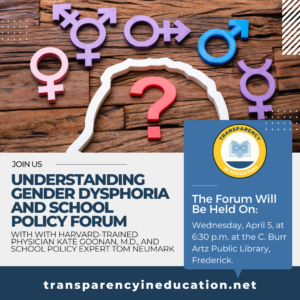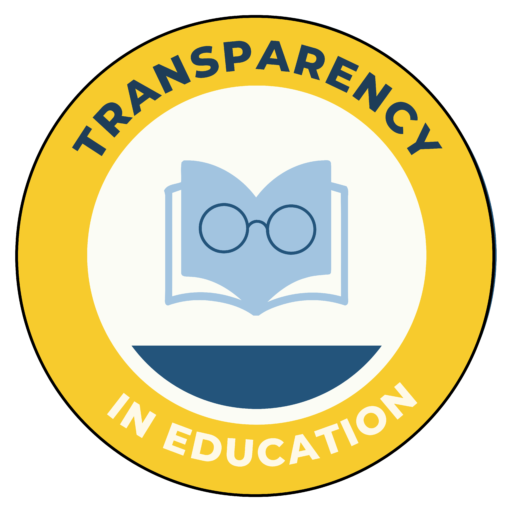There Are Comments Coming at Us in the Form of Arguments, Accusations, and Attacks From Opponents of the Policy Proposal
Here are three of the most frequent points made by those stating their opposition to any revision to the current policy.
Parental Notification
1) This is the most frequently repeated argument: that we ignore the potential that parental notification will increase abuse and homelessness for gender dysphoric and transgender minors.
The crux of the argument is that notifying parents will place a child in a potentially risky or harmful situation at home. Children could be subjected to mental or physical abuse, asked to leave their homes, or driven to run away. This does happen, but it is rare, and no data supports a correlation between how parents handle a gender dysphoric or transgender child at home and a rise in homelessness among minor children. We have asked for the data from those making this argument.
Each child has a unique medical, psychological, and behavioral history, requiring a family’s early input to decide how to support their child best.
Logically, there is an argument that excluding all parents because some might not be supportive or abusive is wrong. Still, medically speaking, excluding families eliminates the best methods of assessing the source of gender dysphoria and hinders the identification of the best care method.
If FCPS has a sense that a child is at risk at home, they should take actions that protect the child, following the established protocols involving Child Protective Services. This is defined in the proposal on page 16.
2) Those who developed the policy proposal and those supporting it are anti-LGBQT+ and support things like conversion therapy.
Unfortunately the effort is to attack the supporters and not debate the content of the policy. To cut through this we have offered to meet and discuss this with the groups that do not want the current policy changed.
Here are a few examples.
Opponents of the policy stated we are anti-LGBQT+ bigots because we pointed out that an FCPS high school group scheduled a drag queen bingo night to raise funds (for a cause unrelated to the school). What we actually did was ask a question: “Should a high school group that maintains a page on the Brunswick High School site be doing so when there are so many other fundraising themes?”
There was no condemnation but rather a point for parents and the community to consider on a topic that has been debated relative to schools and minors throughout Maryland. Parents and the community can decide.
Opponents have stated that we do not support the integration of the concepts and principles of Critical Race Theory into the schools. This one is accurate: we do not believe in the principles of CRT and have laid out our reasons in multiple articles on our website. We disagree that doing so means we are racist and intolerant. We’re not sure how the point proves we are incapable of developing a policy on gender identity or is even relevant to the topic.
Conversion therapy is the attempt to convert those who are gay and lesbian to heterosexuality. Comments have been made that we support it. This is false. On page 5 of the proposal, we condemn conversion therapy as a barbaric practice.
3) We are “outing” children
The term “outing” has long been used to describe the practice of revealing that someone is gay or lesbian against their wishes. Telling parents that their child has a diagnosable psychological condition isn’t the same as outing a minor who is gay or lesbian (an action we do not support). Parents should be made aware of any diagnosable condition when the symptoms of that condition are observed. No one would advocate parents not being informed when their child shows signs of other diagnosable conditions such as depression, anorexia, or ADHD.
If you want to learn more about gender dysphoria and its relation to school policy, a forum will be held in the C Artz Burr Library’s Community Room on April 5 at 6:30 p.m.


